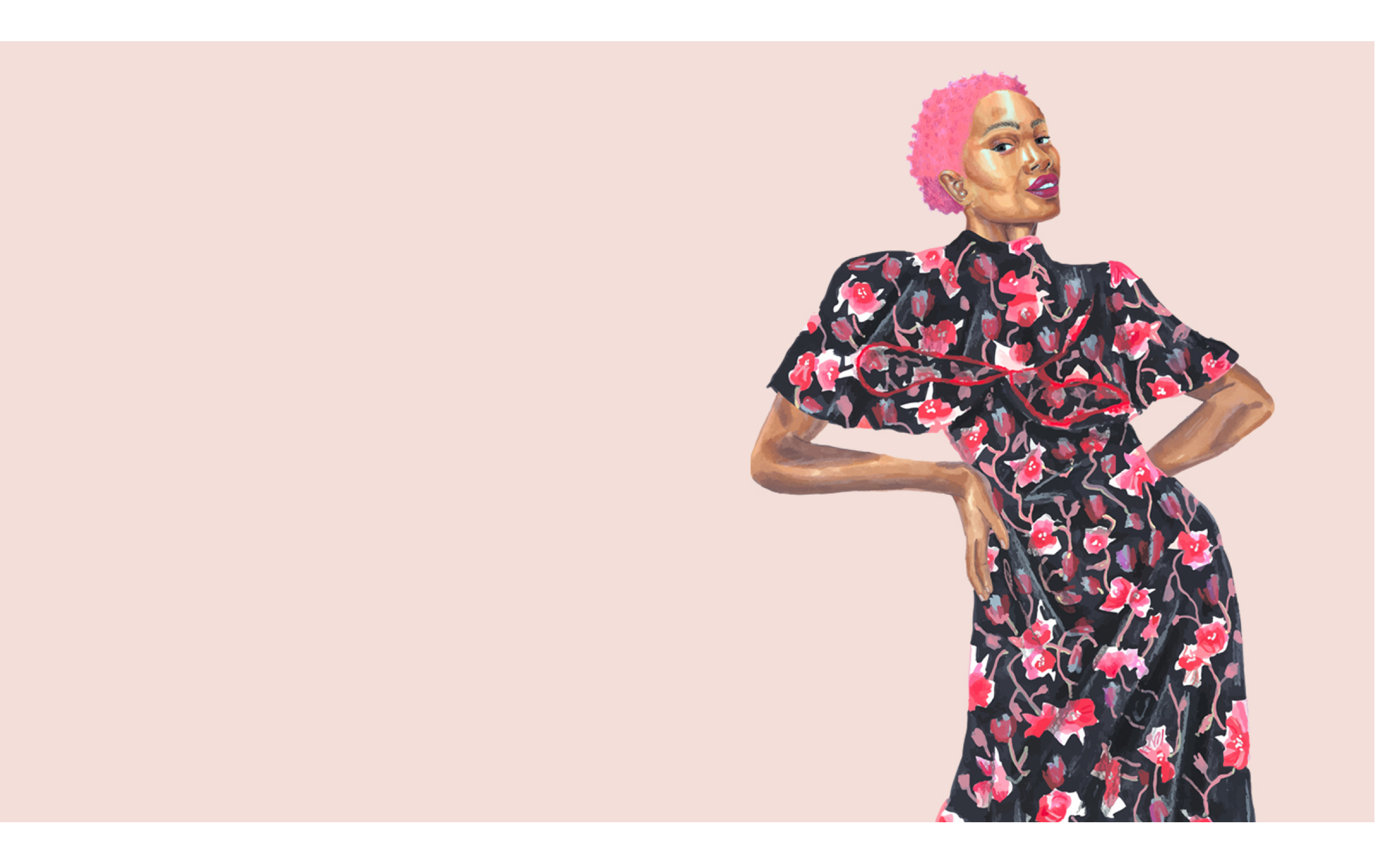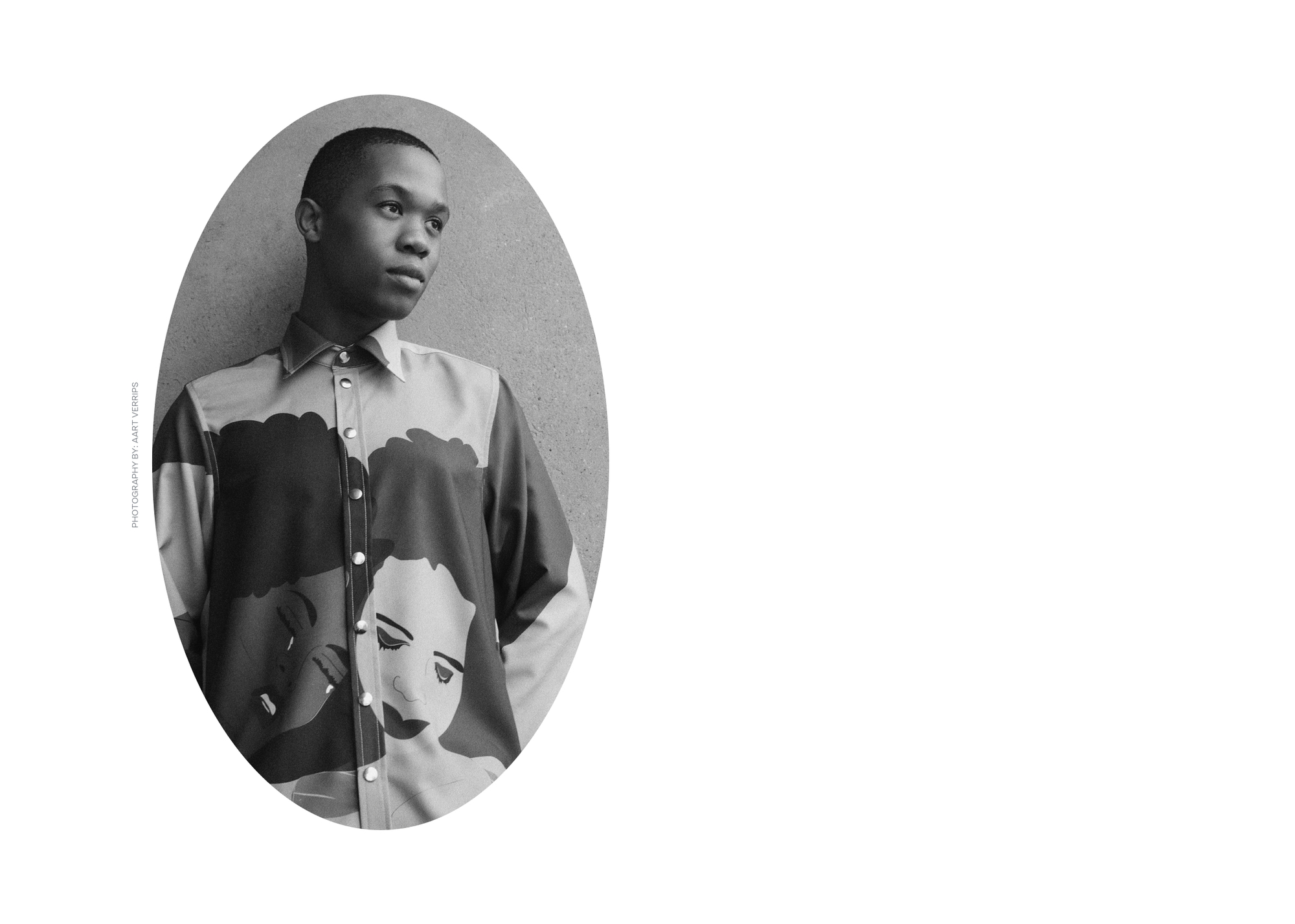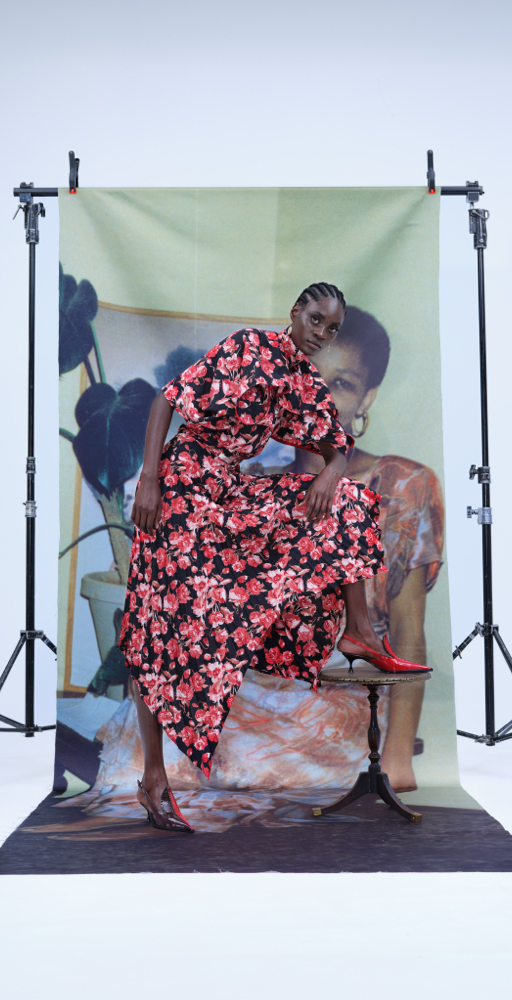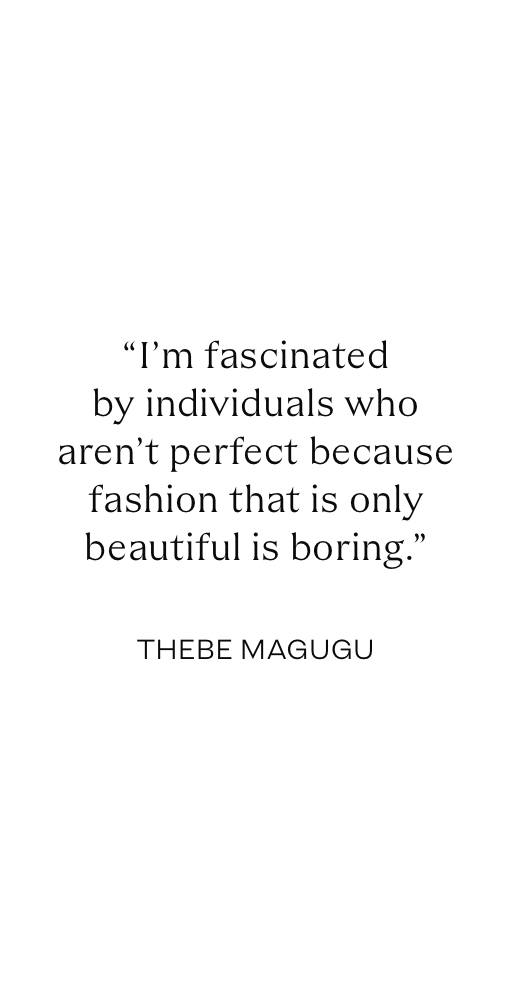


MODA: What does fashion mean to you?
THEBE MAGUGU: In the beginning, fashion for me was purely aesthetic—it was about a FAB moment. But as I grew up and studied it, particularly in fashion theory, I started truly respecting it as an opportunity to do very cerebral work as well that got people thinking. I think people feel liberated when they feel seen and their story is heard, and I think that’s what makes fashion such an incredibly smart medium to communicate, address, and ultimately change.
“I wholeheartedly believe that clothes can liberate people.”
MODA: What was the first piece you ever designed?
TM: A brown dress, fitted around the bust, then ballooned into a hot bubble skirt, which obviously was terrible—but bear in mind I was 11 or 12, so I was beaming with pride over it. I cringe at it today, but I applaud my younger self’s sense of proactivity and experimentation.
MODA: What would you consider to be your brand signatures?
TM: I find merino wool knits to be one of our staples, because of its smarts as a fiber and fabric. I also love our classic blouse and pleated skirt uniforms, which you can see season after season in varying prints.
MODA: What is the inspiration behind the SS’22 collection now on MODA?
TM: This current collection is my most personal to date because the inspiration comes from family photos between 1950 and 1980. As a collection, this is one that, from an inspiration POV, I recommend MODA shoppers have for their archives. In terms of special techniques, we used prints taken from my Basotho heritage and decontextualized them for a global audience. Images of my family are abstracted and printed on pleated full-circle skirts. Conventional outerwear staples are spliced and recontextualized with items from other staples [to create pieces like the] Off-The-Shoulder Trench Coat. It’s about tensions between the modern and the traditional, the local and the global—and a renewed sense of the old.
THEBE MAGUGU: In the beginning, fashion for me was purely aesthetic—it was about a FAB moment. But as I grew up and studied it, particularly in fashion theory, I started truly respecting it as an opportunity to do very cerebral work as well that got people thinking. I think people feel liberated when they feel seen and their story is heard, and I think that’s what makes fashion such an incredibly smart medium to communicate, address, and ultimately change.
“I wholeheartedly believe that clothes can liberate people.”
MODA: What was the first piece you ever designed?
TM: A brown dress, fitted around the bust, then ballooned into a hot bubble skirt, which obviously was terrible—but bear in mind I was 11 or 12, so I was beaming with pride over it. I cringe at it today, but I applaud my younger self’s sense of proactivity and experimentation.
MODA: What would you consider to be your brand signatures?
TM: I find merino wool knits to be one of our staples, because of its smarts as a fiber and fabric. I also love our classic blouse and pleated skirt uniforms, which you can see season after season in varying prints.
MODA: What is the inspiration behind the SS’22 collection now on MODA?
TM: This current collection is my most personal to date because the inspiration comes from family photos between 1950 and 1980. As a collection, this is one that, from an inspiration POV, I recommend MODA shoppers have for their archives. In terms of special techniques, we used prints taken from my Basotho heritage and decontextualized them for a global audience. Images of my family are abstracted and printed on pleated full-circle skirts. Conventional outerwear staples are spliced and recontextualized with items from other staples [to create pieces like the] Off-The-Shoulder Trench Coat. It’s about tensions between the modern and the traditional, the local and the global—and a renewed sense of the old.
MODA: How does your family respond to your intensely personal work?
TM: I think it’s important for people to protect their family when putting them under the light of public scrutiny. I am aware we are living in cruel times, where someone can critique the images on Twitter as a way of trending at the expense of others. But after getting my family’s enthusiastic approval [of actually producing images of them on garments through prints—which was the most challenging of all my original prints], I also wanted the clothes to act as relics one day; that the Magugu Family remains in various archives, whether that’s in museums or as passed-down heirlooms.
“It's about tensions between the modern and the traditional, the local and the global—and a renewed sense of the old.”
MODA: Do you think clothing can help liberate people? If so, how?
TM: I wholeheartedly believe that clothes can liberate people, and I look no further than the women I have interviewed for past collections. For the PROSOPOGRAPHY collection, I interviewed women of the Black Sash—a pro-rights organization during Apartheid in South Africa who fought for liberation of people of color, often offering their own homes as refuge and paying for legal fees. One of them told me she used fashion as a means to switch between her domestic life and her radical life, saying, “When I cooked breakfast for my husband, I would wear a baby pink cotton day dress and when he left, I wore boots and an anorak and went out to fight in the streets. He had no idea.” This was one of many examples of people using fashion as a shelf to hide in plain sight.
TM: I think it’s important for people to protect their family when putting them under the light of public scrutiny. I am aware we are living in cruel times, where someone can critique the images on Twitter as a way of trending at the expense of others. But after getting my family’s enthusiastic approval [of actually producing images of them on garments through prints—which was the most challenging of all my original prints], I also wanted the clothes to act as relics one day; that the Magugu Family remains in various archives, whether that’s in museums or as passed-down heirlooms.
“It's about tensions between the modern and the traditional, the local and the global—and a renewed sense of the old.”
MODA: Do you think clothing can help liberate people? If so, how?
TM: I wholeheartedly believe that clothes can liberate people, and I look no further than the women I have interviewed for past collections. For the PROSOPOGRAPHY collection, I interviewed women of the Black Sash—a pro-rights organization during Apartheid in South Africa who fought for liberation of people of color, often offering their own homes as refuge and paying for legal fees. One of them told me she used fashion as a means to switch between her domestic life and her radical life, saying, “When I cooked breakfast for my husband, I would wear a baby pink cotton day dress and when he left, I wore boots and an anorak and went out to fight in the streets. He had no idea.” This was one of many examples of people using fashion as a shelf to hide in plain sight.

